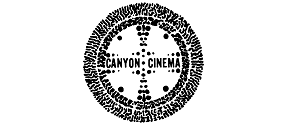Material Excess & The Waters of Casablanca
- Gregg Biermann |
- 2002 |
- 75 minutes |
- BOTH
Material Excess
69 minutes
Narration and text by Sarah Markgraf
Material Excess is a large-scale animated movie, which borrows its structure from Dante's The Diving Comedy. The animation is for the most part created in a digital process related to the hand-made film tradition. In a photo-editing program, scans of various objects are placed on a digital image strip without regard for individual frames. These images are translated into video sequences and the result is an exploding jumble of images. By its very nature, the animation cannot directly illustrate the various bits of narration that appear in the soundtrack. The two things simply happen simultaneously.
Many cultures have beliefs and related depictions about what happens to the soul after death. Material Excess provides an exhaustive tour of the various neighborhoods of the afterlife. The voyage that you will undertake is similar to Dante's journey, however the sights have been changed to relate to our secular, postmodern, and existential setting. Our particular setting is one in which most of the world's resources are brought to bear to provide material items for our consumption.
The three major sections of the piece (Inferno, Purgatorio, and Paradiso) are roughly equal in length. After making our way through the trees of dark wood, we find that Inferno is made up almost entirely of the junkmail that these trees died to make. This material represents one month's worth of the various fliers, catalogues, and circulars that appear in the mailbox of my suburban New Jersey home. Each advertiser is relegated to its own section of hell. The narration in this section is performed by a computer voice and relates various traumas of the shopping experience. It also contains material from Baudrillard's Impossible Exchange. Perhaps it is not an accident that Baudrillard appears in the Inferno as fast talking mastery over logic and language is often seen by the orthodox as opposed to true faith. Satan appears as the light of pure television.
The flatness and printed text of the ads gives way to the supple, textured, three-dimensional shapes of the concluding sections. Purgatory is made up entirely of useful items and the narration relates the gray details of everyday life. These include perfunctory communications and an authentic message from cousin Martha from Richmond.
Paradiso is constructed entirely out of junk food and new age music. Nothing in paradise needs to have nutritional value. The only requirement is pleasure. My best Monty Python accent posits the question of whether Jesus was ever truly happy as gummy bears and chicklets dance on the screen in what critic Fred Camper calls a "half ironic vision of redemption".
The Waters of Casablanca
6 minutes
A single frame from the classic film Casablanca is transformed into six minutes of exploding and hyperactive animation. Although the process is entirely digital, it actually relates to the hand-made or cameraless tradition more than most computer animation.

